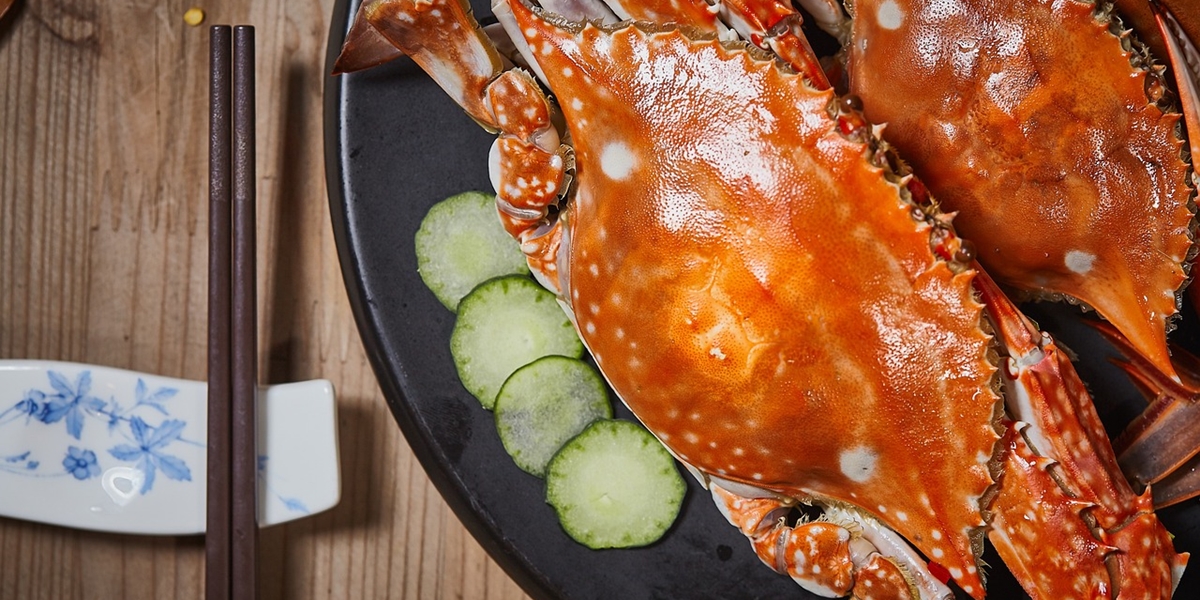Does Eating Long Beans Trigger Uric Acid? Here's the Explanation
Many are curious, can long beans trigger uric acid? Find the answer and full explanation here!

Kapanlagi.com - The question of whether seafood can raise high cholesterol often sparks heated debates among the public. However, the answer is not as simple as one might think! The relationship between seafood consumption and cholesterol levels in the blood is quite complex and requires a deep understanding.
Many people believe that seafood contains high cholesterol and should be avoided. However, this assumption is not entirely accurate. The cholesterol content in seafood varies depending on the type. For example, shrimp, squid, and crab do have higher cholesterol levels, while fish like salmon, tuna, and halibut tend to be lower.
But don't be mistaken! Many types of seafood are also rich in omega-3 fatty acids, which are very beneficial for our heart health. These fatty acids play an important role in lowering triglyceride levels and increasing good cholesterol (HDL). So, if consumed wisely, seafood can provide significant health benefits.
When talking about seafood, not only the type is important, but also the processing methods that can affect our health.
Frying seafood in excess oil can backfire, as it can increase saturated fats and trans fats that contribute to spikes in bad cholesterol (LDL). To maintain health, it is better to choose friendlier cooking methods, such as grilling, boiling, or steaming.
Additionally, using healthy oils like olive oil can also help minimize the negative impact on cholesterol. And if you want to eliminate the fishy taste while gaining additional benefits, squeezing lemon rich in vitamin C can be a smart solution to lower bad cholesterol levels.
Although seafood is known as a tasty low-cholesterol option, it is still important to keep an eye on portion sizes. Overindulging in seafood, even if healthy, can cause your daily cholesterol intake to exceed the recommended limits.
According to the American Heart Association, it is advisable to limit daily cholesterol intake to around 200-300 mg. So, to keep cholesterol levels normal, don’t forget to control how much seafood you enjoy.
For those of you with a history of high cholesterol or heart disease, it is important to be more careful when enjoying seafood, especially those high in cholesterol. It is advisable to consult with a doctor or nutritionist to determine the types and amounts of seafood that are safe for your health.
However, don't worry, because enjoying seafood does not always lead to an increase in cholesterol! The key is to choose low-cholesterol types, prepare them in a healthy way, and consume them in reasonable portions as part of a balanced diet and active lifestyle. Remember, other factors such as genetics, lifestyle, and overall food intake also play an important role in maintaining your blood cholesterol levels.
When enjoying delicious seafood dishes, don't forget to include side dishes that can help lower cholesterol. Fresh green vegetables, brightly colored fruits, and fiber-rich foods like tofu and tempeh are smart choices that not only enhance flavor but also play a crucial role in maintaining health.
The fiber from these ingredients helps bind bile acids, preventing further absorption of cholesterol in the body. Additionally, spices like garlic, known for their effectiveness in lowering bad cholesterol, can be the perfect finishing touch to complement your seafood dish.
Seafood does contain cholesterol, but not all types of seafood lead to high cholesterol levels. It is important to control portion sizes and cooking methods to keep it healthy.
Individuals with high cholesterol are advised to limit their consumption of shrimp, squid, and lobster due to their higher cholesterol content. Shellfish should also be consumed in limited portions.
To maintain health, seafood should preferably be cooked by grilling, steaming, or boiling. Avoid frying in a lot of oil or using excessive coconut milk.
(kpl/rmt)
Cobain For You Page (FYP) Yang kamu suka ada di sini,
lihat isinya
Many are curious, can long beans trigger uric acid? Find the answer and full explanation here!
Thresia Mareta, the author of the book 'Ode to Indonesian Culture', received the prestigious Knight of the Order of Arts and Letters award from the French Government. Here are the facts behind it.
The new Pabrik Gula poster is considered cooler by netizens after the previous controversy.
Fitri Tropica and Irvan Hanafi looked adorable on the catwalk, making netizens burst into laughter!
Nikita Mirzani, often involved in legal issues, has been named a suspect in five different cases. Read more.
The Nyadran tradition is a traditional ceremony of the Javanese people held before the month of Ramadan as a form of respect for ancestors, a unifier of society, and preparation to welcome the holy month.
Indonesia is rich in unique traditions for welcoming Ramadan. From Jakarta to Bali, each region has its own distinctive way of welcoming this holy month with deep meanings that strengthen bonds and purify the soul.
Flavio Zaviera, the star of ASMARA GEN Z, successfully captivated fans in Bandung.
Olla Ramlan with her children and her partner Sean is the spotlight of netizens, praised for her youthful appearance and "superior seeds".
"Welcome Ramadan" is a popular expression that greets the holy month of Ramadan with great joy. Discover the profound meaning behind this phrase, as well as the virtues and traditions that accompany it in Islamic culture.
Learn how to effectively boil tapak dara leaves to safely and naturally address cholesterol and diabetes mellitus.
See the harmonious portraits of Yusuf Sungkar and Dhea Natasya that are rarely highlighted by the media, full of love and harmony.